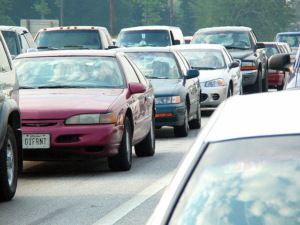News
More young people than ever choosing to drive over cycling and public transport
This article is more than 4 years old.
There’s stiff competition for parking spaces at the nation’s schools as students increasingly opt to drive the family car rather than ride the bus

Young people, though hailed as the green generation, are choosing cars over trains, buses and bikes (photo: US Census)
The proportion of young people using public transport has fallen from 51 to 43 percent in the last decade – but with more families now owning two or three cars, the proportion of young drivers who drive has increased from 16 to 24 percent.
Meanwhile, only 23 percent of young people cycle to school, down from 30 percent in 2016, according to a Dansk Industri analysis based on DTU’s Transport Habits Survey.
Half a million more cars on the roads
In the years covered by the analysis, half a million more cars have appeared on Danish roads. A further 600,000 are forecast by 2030. At the same time, public transport has become more expensive.
“When public transport becomes more expensive and runs less frequently, we reap what we’ve sown – of course young people will choose to drive, especially if there is a vacant car in the garage,” said Michael Svane, the head of Dansk Industri.
He added that the solution is a more tailored and flexible bus service for young people. “But in particular it has to be cheaper,” he contended.










































